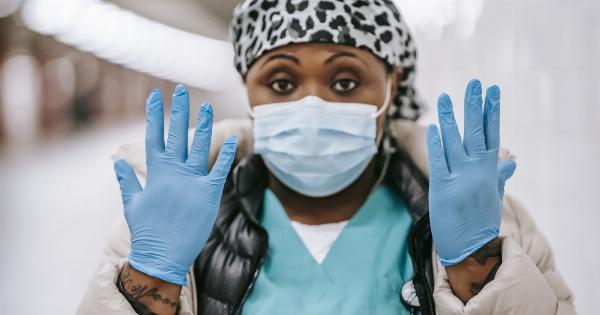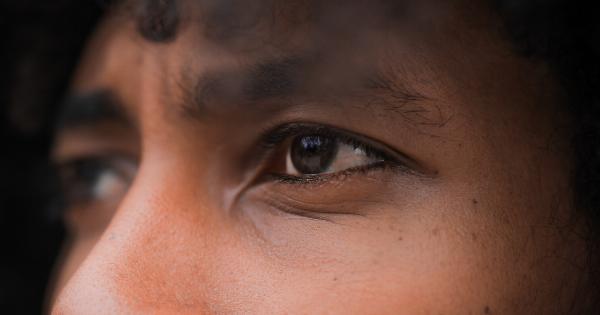Sudden Infant Death Syndrome (SIDS) is a heartbreaking tragedy in which an apparently healthy baby dies unexpectedly during sleep.
This devastating condition mainly affects infants between the ages of one month and one year, with the majority of cases occurring between two and four months old.
The Importance of Safe Sleep Practices
While the exact cause of SIDS is still unknown, researchers have identified several risk factors that may contribute to the occurrence of this heartbreaking event.
Ensuring safe sleep practices for your baby is one of the most crucial ways to reduce the risk of SIDS:.
1. Always Place Your Baby on their Back to Sleep
Placing your baby to sleep on their back is the safest sleep position and has been proven to reduce the risk of SIDS.
Babies who sleep on their stomach or side have a higher chance of experiencing breathing difficulties, overheating, or becoming trapped in bedding materials.
2. Provide a Firm and Safe Sleep Surface
It is essential to provide a firm mattress or sleep surface for your baby. Soft mattresses can increase the risk of suffocation or rebreathing of carbon dioxide.
Avoid placing pillows, soft toys, blankets, or any other loose bedding inside the crib, as they can pose a suffocation hazard.
3. Share Your Room, Not Your Bed
While it’s important to keep your baby close for the first six months, the American Academy of Pediatrics advises against bed-sharing due to the increased risk of accidental suffocation or strangulation.
Instead, consider using a separate crib or bassinet placed near your bed for easy access during nighttime feeding or comforting.
4. Control the Sleeping Environment
Avoid exposing your baby to secondhand smoke, which increases the risk of SIDS. Maintain a comfortable room temperature, ensuring it’s neither too hot nor too cold. Overheating can contribute to the occurrence of SIDS.
5. Encourage Pacifier Use
Research suggests that offering a pacifier during sleep can reduce the risk of SIDS. However, if your baby rejects the pacifier, or it falls out during sleep, there is no need to force its use.
6. Breastfeeding Benefits
Breastfeeding has been linked to a reduced risk of SIDS. If possible, aim to breastfeed your baby exclusively for the first six months. Breast milk provides numerous health benefits, including enhanced immunity and decreased incidence of infections.
7. Avoid Overbundling
While it is important to keep your baby warm during sleep, be cautious not to overdress or overbundle them. Overheating can increase the risk of SIDS. Dress your baby in appropriate sleepwear and use a lightweight and breathable blanket if necessary.
8. Immunizations
Ensure your baby receives all recommended immunizations on schedule. Immunizations have been shown to reduce the risk of certain infections, which are known to be associated with SIDS.
9. Avoid Bedding Accessories and Products Touted as Preventive Measures
Several bedding accessories and products claim to reduce the risk of SIDS. However, there is no scientific evidence to support their effectiveness. It is best to rely on safe sleep practices endorsed by reputable pediatric organizations.
10. Recognize the Warning Signs
Sudden Infant Death Syndrome often occurs without any apparent symptoms or warning signs. However, it is essential to be vigilant and seek immediate medical attention if your baby displays any of the following:.
- Difficulty breathing or significant breathing pauses
- Extreme fatigue or lethargy
- Irregular or rapid heartbeat
- Persistent coughing or wheezing
- Cyanosis (bluish tint on the lips, face, or extremities)
Remember that while these signs may indicate a serious health concern, they are not necessarily indicative of SIDS. It is crucial to consult a healthcare professional for an accurate diagnosis.
Supporting Bereaved Families
Dealing with the loss of a child is an indescribable agony for parents and families affected by Sudden Infant Death Syndrome.
If you find yourself in this heartbreaking situation or know someone who has, it’s important to provide and seek out support. Several organizations offer guidance, counseling, and resources specifically designed to help families cope with the devastating aftermath of SIDS.
Coping Strategies for Parents and Caregivers
1. Seek Support from Loved Ones.
Reach out to family members and close friends who can offer emotional support during this difficult time. Sharing your feelings and thoughts with those who care about you can help ease the burden of grief.
2. Join Support Groups.
Participating in support groups for parents who have experienced the loss of a child to SIDS can provide a safe space to share experiences and emotions.
Connecting with others who have gone through similar circumstances can be immensely comforting and healing.
3. Seek Professional Help.
Don’t hesitate to seek assistance from mental health professionals experienced in supporting bereaved individuals. Therapists, counselors, and grief specialists can provide guidance and help you navigate the complex emotional journey of grief.
4. Take Care of Yourself.
Grieving for a child is emotionally and physically exhausting. It’s crucial to prioritize self-care by eating well, exercising, and getting enough rest.
Engaging in activities that bring you joy, such as hobbies or spending time in nature, can also help alleviate emotional distress.
5. Memorialize Your Child.
Creating a memorial for your baby can be a meaningful way to honor, remember, and cherish their memory. Consider planting a tree, designing a garden, or even establishing a scholarship or charitable foundation in their name.
6. Educate Others.
Sharing your story and raising awareness about Sudden Infant Death Syndrome can help educate others and prevent future tragedies.
By spreading knowledge about safe sleep practices and the risk factors associated with SIDS, you can make a difference in the lives of other children and families.
Conclusion
Sudden Infant Death Syndrome is a devastating reality that no parent or caregiver wants to face.
However, by implementing safe sleep practices, promoting awareness, and supporting families affected by SIDS, we can work together to reduce the occurrence of these heartbreaking events. Remember, seeking support and educating others are essential steps towards preventing future tragedies and providing solace to those who have experienced the unthinkable.






























